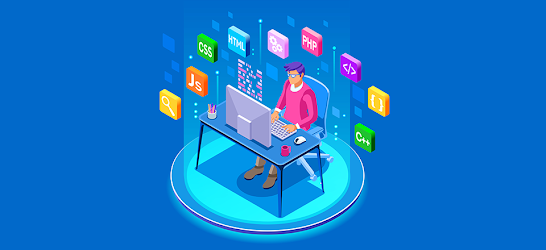Factors That Help To Determine The Right Cms Web Development
- Good content management
- Create and manage websites efficiently
- Promote and manage digital marketing
strategies effectively
- Improve web traffic and enhance
conversions
But creating a rich, interactive and informative website requires a lot
of deliberation and planning. The choice of the CMS or content management
system also has a crucial role to play. Hence, it needs to be done based on
certain relevant factors like:
- Internal
requirements of the business: E-commerce
companies need to be clear about their expectations from the CMS. Four
things that need to be considered here are:
- User experience
- Website maintenance
- Products and services offered by the
business
- Payment options to be incorporated
Since it is easy to add plug-ins in a CMS platform, knowing the critical
elements that are needed for the e-commerce business to grow and prosper, helps
to make good use of this feature.
Currently, a CMS comes with a host of advanced features. To capitalise
on this, an in-depth consideration of the needs of the involved people is
mandatory. Ideally, the company management should compile a list that addresses
individual CMS demands for different departments. Creating a matrix that
establishes the order of priority for the same makes the process more
organised. This matrix helps company decision-makers to compare and assess the
different CMS platforms available and choose one that is effective.
- Category
of CMS hosting: Most companies that
deal in cms website development
services choose any of the three different ways to host a CMS. They
are:
- Self-hosting:
Here in the web servers owned or
controlled by the e-commerce company is used to install the CMS. This
installation is independent of whether a private server, a hosting
provider or the organisation’s physical server has been used.
Self-hosting of the CMS gives the developers maximum control over its
performance, security, customizability and the respective digital
marketing ecosystem. However, e-commerce companies should generally avoid
self-hosting if they don’t have precision knowledge, infrastructure and
the required performance configuration tweaks.
- Cloud-hosting: Installing the CMS on the cloud enables developers to take
control of or automate maintenance-related tasks like:
§
Security updates
§
Performance monitoring
§
Providing appropriate DevOps
environments
§
Backups etc
The availability of this feature makes it easy for
developers like Neuronimbus to
ensure efficient and error-free web development. Cloud hosting is flexible and
scalable and as they evolve and improve, differences between SaaS CMS solutions
and cloud hosting begin to blur.
- SaaS
CMS: Installing a CMS on SaaS or software-as-a-service
platforms might not give the e-commerce companies much control or
decision-making power over its associated infrastructure and other
related aspects. Nevertheless, SaaS CMS is still a smart hosting option
for businesses of certain types and sizes. It is cost-effective and can
be implemented quickly.
E-commerce companies need to understand their requirements and choose
the type of hosting they require. This will determine the final choice of the
CMS platform.
- Traditional
versus headless CMS: Companies that need a
snappy, complex and visual user interface should always opt for a headless
CMS solution. A headless CMS comes with the ability to separate the
front-ending visual display from the logic and functionality of the
content management going on at the back. It deals more with content and
has no direct connection with the front-end. This is its greatest
advantage since it offers the flexibility to present the content in many
different ways without being affected by how it is presented.
Alternatively, traditional CMS provides a single solution to manage the
content and display. It is a monolith containing everything from the content
database to the presentation layer.
- Support: This is a crucial criterion for consideration. The custom cms website development company
selected should have the necessary expertise, experience and skillset to
maintain the chosen CMS. They need to have the required tools to monitor
the system constantly and have relevant plans in place to tackle
obstacles, critical mishaps or other issues that arise.

.jpg)
Comments
Post a Comment